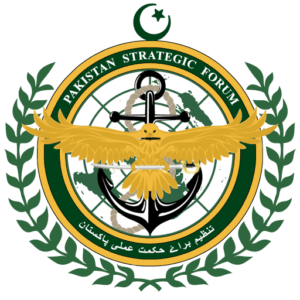“Pakistan must be prepared for all eventualities and dangers. The weak and the defenceless, in this imperfect world, invite aggression from others. The best way in which we can serve the cause of peace is by removing temptation from the path of those who think that we are weak, and therefore, they can bully or attack us”, said Muhammad Ali Jinnah while addressing the officers and ranks of the newly formed Pakistan Navy in Karachi on 23rd January 1948, at PNS Dilawar. Pakistan had been forewarned by the Founder that Pakistan must not rely on others to defend it when the time comes.
Pakistan holds key geostrategic importance in the South-Asian region and a hostile neighbour India, towards its Eastern border. Since the time of Pakistan’s independence, Pakistan has considered its Navy as a significant instrument to guarding the coastal line which connects Pakistan to the rest of the world through the Arabian sea. On 23rd January 1948, Muhammad Ali Jinnah stood before a small but patriotic group of Naval Officers of the then-infant state of Pakistan.
“Pakistan is still in its infancy and so is it’s Navy and other branches of the armed forces. But this infant means to grow up and God willing will grow up much sooner than many people think. You will have to make up for the smallness of your size by your courage and selfless devotion to duty for it is not life that matters but the courage, fortitude, and determination you bring to it. People from all over the globe pass through Karachi and the eyes of the world are on you. I trust that, by your behaviour and deportment you will never let Pakistan down but would keep up the best traditions of the service and maintain high the honour and prestige of Pakistan as one of the greatest nations of the world.”
Few years after the independence, the India-Pakistan war broke out in the year 1965. The cause of contention was the liberation of Kashmir from the Indian Occupation. During the war, the Armed Forces of Pakistan were involved in the intense ground battle. Consequently, on the Southern front, Pakistan decided to launch an attack on the Indian coastal region. Therefore, on the night of the 7th and 8th of September, Pakistan Naval High Command was given a “go ahead” to launch a naval bombardment of the coastal radar and some other military installations on the Indian coast of Dwarka, in the state of Gujarat.
Following were the goals of Operation Dwarka:
- Draw heavy enemy units out of Bombay for the submarine PNS Ghazi to attack
- Destruction of the radar installation at Dwarka, Gujarat
- Bring down the Indian Morale
- Divert the Indian Airforce attacks from Northern Pakistan
Pakistan Navy chose Dwarka as a target because of its proximity which was 200 km (120 mi) from the Karachi Port, it had weak defences and held historical political importance. The PNS Ghazi successfully diverted the Indian Airforce from attacking Northern Pakistan, and the air raids on Karachi in the South also ceased. Pakistan Navy succeeded in keeping the Indian Naval units at bay and successfully protected the Pakistani seas. Operation Dwarka was a significant naval operation of the 1965 war.
Pakistan Navy continues to protect the Pakistani seas and is leading the security of China Pakistan Economic Corridor, Gwadar port project from the front. Originally valued at $47 billion, the value of CPEC projects is worth $62 billion as of 2020. Pakistan Navy and Chinese Navy together are safeguarding and managing the security of this CPEC trade corridor which connects Central Asia and Pakistan to the rest of the world. As Sun Tzu says in the Art of War “Let your plans be dark and impenetrable as night, and when you move, fall like a thunderbolt.” Pakistan Navy is awake and guarding the seas of Pakistan.
Author: Humaira Wajahat
Follow Humaira Wajahat on Twitter @HumairaWajahat
#TeamPakistanStrategicForum







